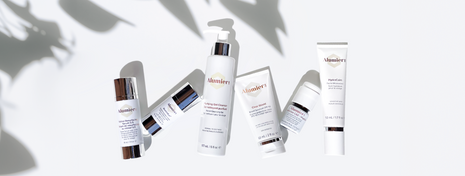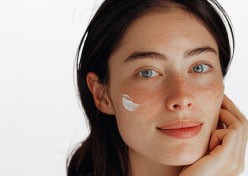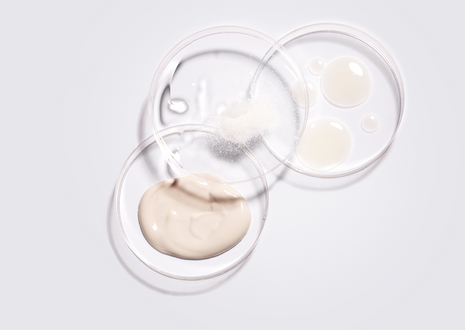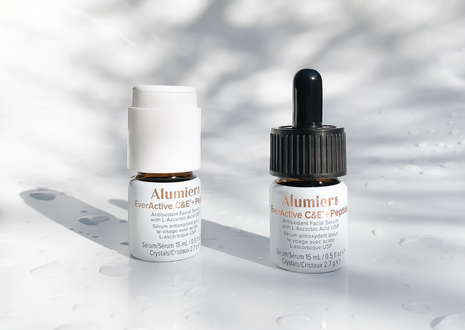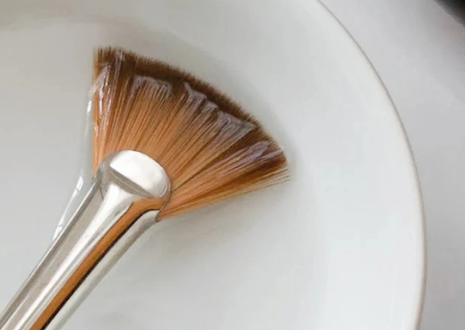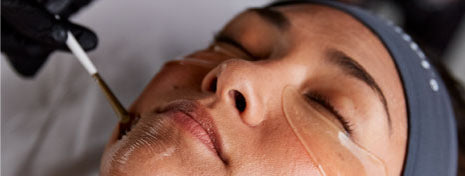The sparkling festive season is over, and we’re heading into the deepest, darkest months of winter for a little bit of hibernation. You could be forgiven for assuming that now is the time to reach for your richest moisturisers to counteract the inevitable dry skin. For some people, yes, but dry winter skin is not a universal truth. Discover all . . .
Dry or Dehydrated?
First up, it’s time for us to bust the biggest skin myth there is – NOT everybody gets dry skin in the winter! Yep, even mild flakiness and tightness might point to dehydrated skin, which is distinctly different from dry skin. Winter often exacerbates dehydration, which can happen to all skin types, so you might be oily but see signs of dryness, it’s complex! Stick with us, we promise we’ll reveal all! Let’s start with the difference between true dryness and dehydration. Although the symptoms can appear the same on the surface of the skin, the underlying causes are from two completely different networks in the skin. Natural oils within skin are made up of sebum and ceramides which come from the oil glands to naturally moisturise. When there’s a glitch in this system, your skin will be lacking in oil and then show symptoms of dryness such as flakiness, roughness, and a feeling of tightness. True dryness might feel like a deep tightness, whereas dehydration is more superficial tightening (like a film on a soup). skin hydration comes from nifty little cells known as GAG cells which produce hyaluronic acid and hold water within the skin. When both are working optimally, your skin has enough hydration and oil for your hydro-lipid barrier or skin barrier to look and feel smooth and glowing.
Why Skin Gets Dry During Winter
During the winter months, the all-important skin barrier is more likely to become compromised thanks to harsh environmental conditions and once the barrier is damaged, we get trans epidermal water loss. This is when water literally floods out of the skin leaving us – you guessed it – dehydrated! The winter air is much dryer, not least because there are no leaves on the trees pumping out oxygen and liquid. Warm central heating makes our homes lovely and cosy, but also dries the air so our skin has nowhere to draw moisture from, a bit like sitting in a giant dehumidifier.
Let’s Talk Solutions
Retinol can help boost skin performance long term which can improve skin hydration over time, so don’t stop using it over the winter months and talk to your pro about adding into your routine if it isn’t already. Hyaluronic acid is naturally produced by the body and is able to hold 1000 times its weight in water. Our Ultimate Boost Serum is packed with hyaluronic acid and skin barrier favourite niacinamide, so helps to keep skin hydrated throughout the winter months. Did you know that tremella mushroom – which you’ll find in our award-winning AluminEye – outperforms hyaluronic acid in its ability to attract and retain water in the skin! Plus, the delicate area around the eyes often needs extra support in harsher environments.
All About Moisturiser
As winter starts to bite, the internet will start raving about how you need a thick, cocooning moisturiser, but combining an active serum like Ultimate Boost with AluminEye might be enough for your skin. You can add a moisturiser to this combo, but remember, not all moisturisers are made equal. If you feel a little dehydrated, then try HydraClarité, while if your skin could be likened to the Sahara Desert – reach for HydraRich. There’s every moisturiser in-between – well 7 – for all sorts of skin requirements, ask your skin pro for advice on the best one for your needs.
Other Ways to Beat Dry Skin
Complement your skin routine with our top lifestyle tips to prevent the barrier damage that leads to dry skin.
- While super-hot showers might be tempting at this time of year your skin will thank you if you choose cold water therapy instead! Hmm, or maybe just warm water. Hot water can irritate the skin by stripping away healthy oils and forcing out water which leads to dehydration. Keep in mind while washing your face and hands too -- choose lukewarm water.
- Make sure you are drinking enough water each day: 5 litres per day for women and 3.5 litres for men, on average. Bear in mind that hydration is cumulative, so if you miss your target one day, you do need to drink more the next day. Drinking enough will help skin cells to stay full of water which means they’ll look plumper and help to flush any toxins through.
- Support your nutrition with healthy fruit and vegetables (also packed with water) and find a natural equilibrium for your body.
- Don’t keep the heating on full whack all the time – especially when you are in and out. Constantly exposing your skin to hot and then cold air can strip away vital oil and water from the skin.
Your skin is communicating with you all the time, all those little dry patches, irritations and red areas mean something, so make sure you listen and adjust your routine accordingly. If you don’t speak fluent skin, luckily your skin pro does! They will be able to help you avoid dry January and keep your skin on track.
